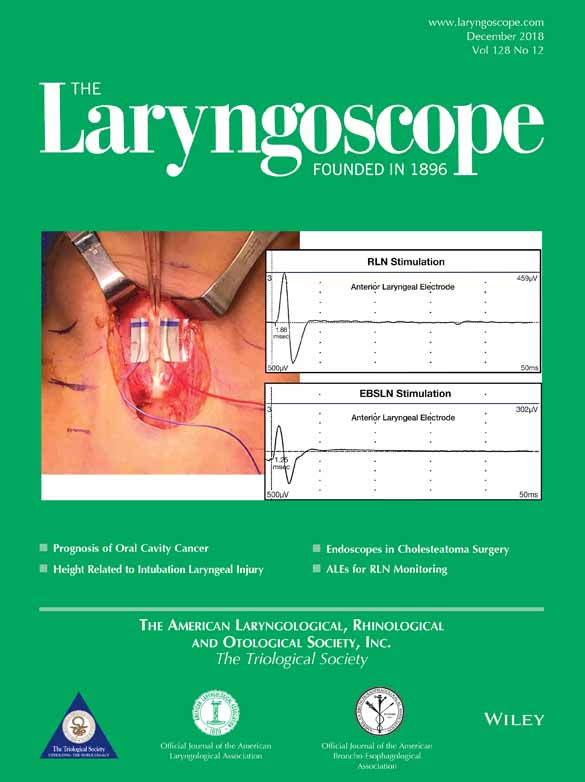The Impact of Duty-Hour Restrictions on Complication Rates Following Major Head and Neck Procedures
Presented as an oral presentation at the Triological Society Combined Sections Meeting, Scottsdale, Arizona, U.S.A., January 18, 2018.
The authors have no funding, financial relationships, or conflicts of interest to disclose.
Abstract
Objectives/Hypothesis
To assess the impact of resident duty-hour restrictions (DHR) in otolaryngology via comparison of postoperative outcomes between otolaryngology teaching hospitals (Oto-TH) and nonteaching hospitals (NTH) before and after complete implementation.
Study Design
Retrospective database review.
Methods
The Nationwide Inpatient Sample was queried for all major head and neck cases between 2000 and 2002 (n = 34,064) and 2008 and 2010 (n = 33,094). Cases were stratified into Oto-TH (n = 28,771) and NTH (n = 38,387) and assessed for procedure type, patient comorbidities, and complications. A subpopulation matched by procedure type was generated for direct comparison of complication rates using χ2 and binary logistic regression analyses.
Results
In the years following DHR, total case volume and average case complexity increased at Oto-TH only. Using a case-matched subpopulation, regression analysis found Oto-TH status to be protective for medical complications both before (odds ratio [OR]: 0.60, P < .001) and after (OR: 0.76, P = .001) DHR. In contrast, Oto-TH cases had lower risk for surgical complications in 2000 to 2002 (OR: 0.77, P < .001) but not 2008 to 2010 (OR: 1.07, P = .275). When comparing time periods, the years following DHR were associated with a significant decrease in medical complications and mortality across hospital cohorts. For surgical complications, rates significantly improved at NTH only (OR: 0.82, P = .002), with no difference at Oto-TH (OR: 0.95, P = .450).
Conclusions
In the years following DHR, rates of medical complications, surgical complications, and mortality have significantly improved at NTH. At Oto-TH, there has been a lack of similar improvement in surgical complications, even after accounting for increasing case volume and complexity in more recent years. While the cause is likely multifactorial, DHR in otolaryngology residency may play a role.
Level of Evidence
4 Laryngoscope, 128:2804–2810, 2018




